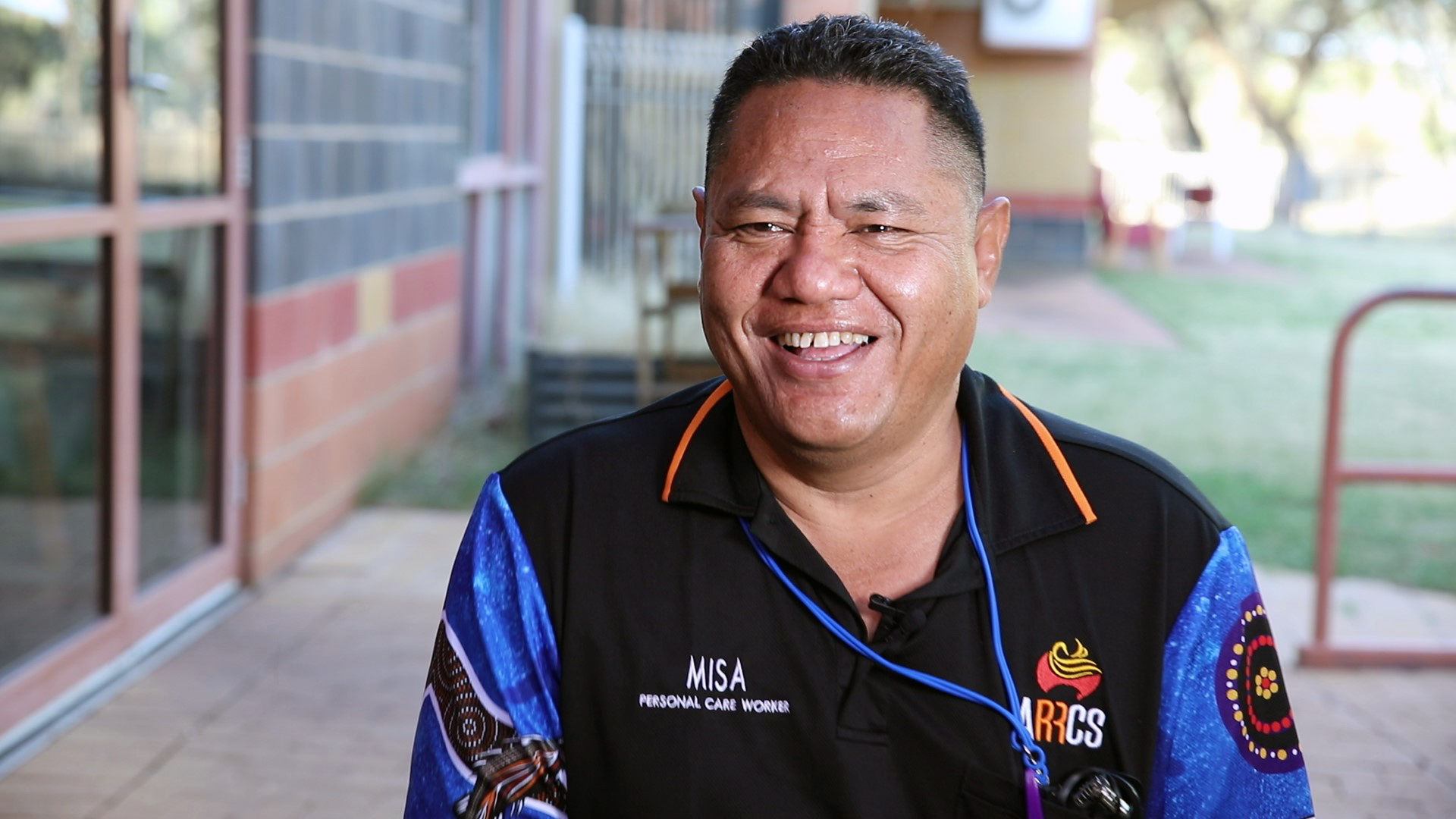Misa is a personal care worker in Alice Springs, Australia, and spends his days looking after elderly residents, making sure they have their medication, and that they’re fed, comfortable and happy.
Misa is employed through the Pacific Australia Labour Mobility (PALM) scheme, which connects Pacific Island and Timor-Leste workers with employers in various industries across Australia.
From passion to profession
 Although caring for the elderly has always been a passion for Misa, it wasn’t until he joined the PALM scheme that he was able to learn technical skills, undertake a Certificate III in Individual Support (Ageing) and make personal care his profession.
Although caring for the elderly has always been a passion for Misa, it wasn’t until he joined the PALM scheme that he was able to learn technical skills, undertake a Certificate III in Individual Support (Ageing) and make personal care his profession.
“We knew how to care for people, but in the Samoan traditional way as we are responsible of taking care of our old people, our grandparents and parents.
“Our call here is to make aged care our trade and become professionals. We’ve learnt a lot of new things, for example using the machines, about the safety practices,” he said.
Understanding aged care in Australia
Aged care facilities in Australia provide support to older people who are unable to remain living at home. This may include people with disabilities.
Because the facilities provide 24-hour, seven-days-a-week care, workers have to work during the day, afternoon or night – or a combination of different times. This could include working on weekends.
Roles in aged care include personal care workers, but can also include kitchen hands, cooks, laundry workers, cleaning staff, maintenance and groundskeeping roles.
Misa is currently working at an Indigenous aged care facility and has enjoyed learning about the residents’ cultures and languages, and has found some synergies with his own culture, too.
“There are similarities between the Indigenous people here in Australia and our people in Samoa. I mostly see this in how they respect their old people. We must respect their needs and their behaviour,” said Misa.
“Through experience working with diverse range of people here we can help our people back home. There are not only Samoan people in Samoa, but there are also people from different countries.”
Giving back to his community
Misa hopes to use his skills to help aged people in Samoa.
“My call is to help my family and my community when I go back home. I hope what I have learnt will help our people back home, and our country in extending these services,” he said.
Samoan workers are also involved in the Australian Government's Aged Care Expansion program, where participating workers are funded to undertake the internationally recognised Certificate III in Individual Support (Ageing) qualification while they are working for their PALM scheme employer.
A partnership for the future
Samoa’s participation in the PALM scheme is driven by the Government of Samoa Ministry of Finance Labour and Employment Export Division and operates in partnership with the Australian Government.
Both the Samoan and Australian Governments are committed to successful reintegration outcomes. The desired result is for workers to be able to fully utilise the qualifications, skills and experience gained whilst working in Australia under the PALM scheme upon their return home to their families, communities and country.

